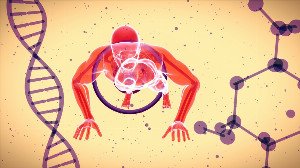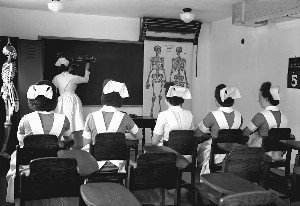Siti Masitoh
Kedudukan Anak Hasil Perkawinan Siri Menurut Hukum Positif (Studi Kasus Pengadilan Agama Pandeglang Kelas 1B Putusan No 6/Pdt.P/2024/PA.Pdlg)
Introduction
Kedudukan anak hasil perkawinan siri menurut hukum positif (studi kasus pengadilan agama pandeglang kelas 1b putusan no 6/pdt.p/2024/pa.pdlg). Telusuri kedudukan anak perkawinan siri dalam hukum positif & Islam. Studi kasus Pengadilan Agama Pandeglang menyoroti penetapan nasab ayah biologis melalui bukti DNA sesuai UU & maqasid syariah.
Abstract
Kelahiran anak merupakan peristiwa hukum yang memerlukan ketentuan yang jelas dan tegas. Pasal 42 UU No. 1 Tahun 1974 tentang Perkawinan menyatakan bahwa anak sah adalah anak yang dilahirkan dari pernikahan sah, sedangkan pasal 43 ayat 1 mengatur bahwa anak yang lahir di luar perkawinan hanya memiliki hubungan perdata dengan ibu dan keluarga ibunya. Penelitian ini bertujuan untuk mengkaji pandangan hukum Islam dan hukum positif Indonesia terhadap kedudukan anak hasil perkawinan siri dan untuk mengidentifikasi pertimbangan hakim dalam memutuskan perkara terkait anak hasil perkawinan siri pada putusan No 6/Pdt.P/2024/PA.Pdlg. Penelitian ini menggunakan metode kualitatif dengan pendekatan observasi, wawancara, dan dokumentasi yang dilaksanakan di Pengadilan Agama Pandeglang Kelas 1B. Hasil penelitian menunjukkan bahwa hakim memutuskan bahwa dua anak yang bersangkutan dapat dinasabkan kepada ayah biologisnya berdasarkan bukti DNA sesuai dengan UU No. 1 Tahun 1974 Jo UU No. 16 Tahun 2019 dan tidak bertentangan dengan hukum Islam, sehingga sejalan dengan maqasid syariah.
Review
This paper addresses a highly pertinent and complex issue within Indonesian family law: the legal status of children born from *siri* marriages, or unregistered religious unions. Given the significant implications for child welfare and legal certainty, the research is timely and necessary. The authors clearly outline the legal conundrum stemming from Article 42 and 43 of Law No. 1 of 1974 on Marriage, which restricts the definition of a legitimate child to those born from legal marriages, thereby limiting the civil ties of children born outside such unions primarily to their mothers. The study’s objectives are well-defined: to thoroughly examine the perspectives of both Islamic law and Indonesian positive law on this matter, and crucially, to analyze the judicial considerations in a specific landmark case from the Pandeglang Religious Court (Decision No 6/Pdt.P/2024/PA.Pdlg). Employing a qualitative methodology encompassing observation, interviews, and documentation conducted at the Pandeglang Religious Court, the research offers a rich, empirical insight into judicial practice. The strength of this approach lies in its focus on a specific case study, providing concrete evidence of how the legal frameworks are applied and interpreted in practice. The most significant finding reveals that the presiding judge, in Decision No 6/Pdt.P/2024/PA.Pdlg, ruled that two children could be affiliated with their biological father based on DNA evidence. This ruling is presented as consistent with contemporary Indonesian legal provisions (specifically Law No. 1 of 1974 Jo Law No. 16 of 2019) and, importantly, deemed not to contradict Islamic law, thus aligning with the principles of *maqasid syariah*. This demonstrates a pragmatic and rights-oriented judicial interpretation bridging traditional legal texts with modern scientific evidence. The paper makes a valuable contribution by highlighting a progressive judicial approach that prioritizes the welfare of children born from *siri* marriages, effectively leveraging DNA evidence to establish paternal lineage. This ruling potentially sets a precedent for expanding the interpretation of a child's legal status beyond the strict confines of registered marriage, ensuring greater legal protection and access to rights for these vulnerable children. While the detailed analysis of a single case offers profound insight, future research could explore the broader applicability and challenges of implementing such decisions across various religious courts in Indonesia. Furthermore, examining the socio-economic impact of these rulings on the families involved, and the potential for advocating for more widespread legal reforms based on *maqasid syariah* and human rights principles, would further enrich this critical area of legal scholarship.
Full Text
You need to be logged in to view the full text and Download file of this article - Kedudukan Anak Hasil Perkawinan Siri Menurut Hukum Positif (Studi Kasus Pengadilan Agama Pandeglang Kelas 1B Putusan No 6/Pdt.P/2024/PA.Pdlg) from Integralistik .
Login to View Full Text And DownloadComments
You need to be logged in to post a comment.
Top Blogs by Rating
The Immortal Jellyfish: Unlock...
By Sciaria
Life's Grand Algorithm: Is Bio...
By Sciaria
The Invisible Load: Unveiling...
By Sciaria
Favorite Blog
Genetic Dark Matter: The Unsee...
By Sciaria
Big Data's Unintended Conseque...
By Sciaria
The Gamification of Governance...
By Sciaria





